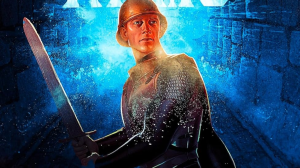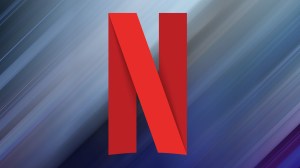You’d think a company with a name like the ‘British Broadcasting Corporation’ would have limited brand appeal, but on the contrary: The BBC has grown to become one of the more successful TV networks in the game today.
Videos by ComicBook.com
As shows like Sherlock‘s season 4 premiere rack up big ratings, we’re looking back at how this modern British TV invasion went down – and why we’re so happy that it did.

Taste Maker
The first thing that the BBC did to gain popularity with US audiences was inadvertent, but no less important: in the 21st century, it’s set new tastes for what TV programming can and should be.
UK television series have long operated under a different structure, preferring shorter, self-contained seasons, or “series” (10 – 13 episodes). That structure was adopted by American Cable TV first and foremost – as was the format of having shows under the creative vision of one (or a few) dedicated showrunners, rather than a writer’s room.
Now the US has any number of cable series in that revised seasonal structure, from Game of Thrones to Mad Men to Sons of Anarchy; and US audiences have a taste for TV shows done the British way. It’s led to some successful imports (like The Office), but more importantly, it’s inspired a different creative direction for American TV.

It Sold the Culture
One thing the BBC has so done well with its original programming is to sell American audiences on the experience of British culture. Shows like Broadchurch, Luther, and The Office have directly overcome the cultural gap and connected with foreign audiences over subjects like with universal subjects like the workplace drama and crime procedurals – while other series like BBC America’s Orphan Black use British culture as a backdrop to tell stories that aren’t fixed to the country itself.
In any event, American audiences no longer have the stigma that turning on The BBC means a confusing experience with funny-sounding people. It’s a destination they love to travel to – even to watch British versions of talk shows, like The Graham Norton Show. Thank BBC America in particular for knowing when and where crossover successes are possible.

It Found a Loyal Geek Niche
Visit any Comic-Con in America and you will find The BBC represented in full effect. The network has done a great job of picking shows that appeal to geek culture, including Orphan Black, Sherlock, and of course, Doctor Who.
Even if other shows don’t find a large audience on the American side of the pond, those geek-chic series are enough to carry the BBC brand in America for the foreseeable future. Geeks are fiercely loyal, and that loyalty doesn’t have borders.

It’s Launched New International Talent
Idris Elba (Thor: Ragnarok), Ruth Wilson (The Affair), Benedict Cumberbatch (Doctor Strange), Martin Freeman (The Hobbit), Tatiana Maslany (Orphan Black), David Tenant (Jessica Jones), Jamie Dornan (Fifty Shades of Grey) – all of these actors are now rising or established stars. Not so coincidentally, they also happen to be stars of big BBC crossover hits of the last few years.
When America needs big talent in its movies and shows, the BBC has served as an excellent supplier.

It Embraced the Future
The BBC has been forward thinking when it comes to distribution channels for its programming. Fans could find BBC series episodes in their On Demand lineups years before American TV embraced it; meanwhile, streaming services like Netflix introduce viewers all over the world to popular or acclaimed BBC series (such as Luther or The Fall).
The BBC has embraced a 21t century entertainment market comprised of a global audience, whose desire for programming moves at digital speed. As borders between entertainment seekers continue to fall, The BBC has made sure it’s in the right place to capitalize.









